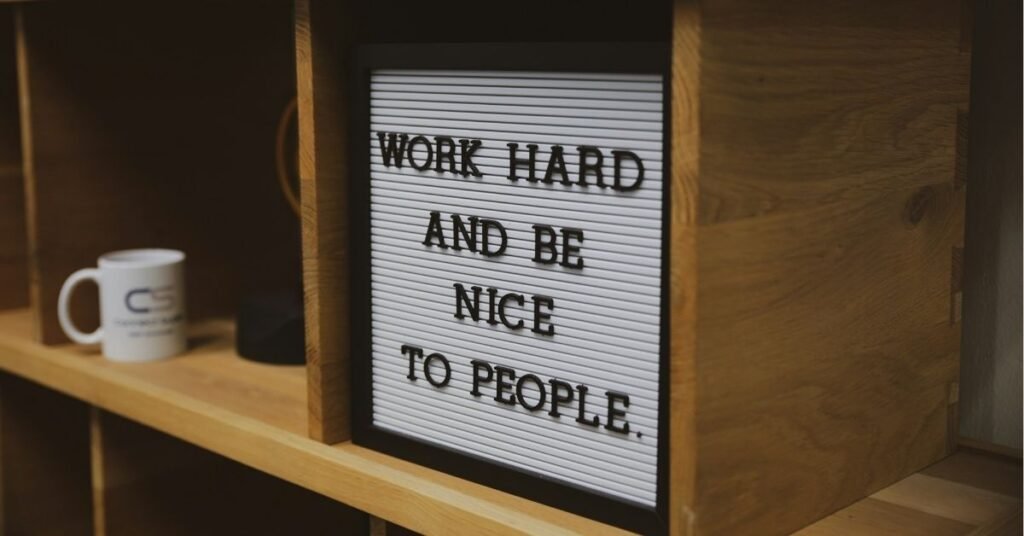A short, powerful quotation can change the course of a study session, a term, or even a student’s life. For learners who juggle deadlines, exams, and personal goals, the right words at the right moment create focus, build resilience, and inspire disciplined action.
This guide collects the best quotation for students—organized by theme—and pairs each group with practical, research-backed tactics you can apply immediately.
Whether you’re a high-schooler preparing for finals, a college student designing a career path, or a lifelong learner, this post gives you:
- Quick, featured-snippet friendly answers for search (top concise quotes)
- Thematic collections (motivation, study habits, exams, failure, time management, mental health)
- Actionable ways to use quotes (daily routines, journaling prompts, study anchors)
- A step-by-step plan to turn inspiration into results
Read on to find the quote that speaks to you—and then use the short, practical exercises to make its message real.
Best Quotation For Students
Featured answer (short):
The best quotation for students depends on your need—motivation, focus, resilience. A few universally powerful lines to start with:
- “Education is the most powerful weapon which you can use to change the world.” — Nelson Mandela
- “The expert in anything was once a beginner.” — Helen Hayes
- “Don’t watch the clock; do what it does. Keep going.” — Sam Levenson
- “Success is the sum of small efforts repeated day in and day out.” — Robert Collier
- “You don’t have to be great to start, but you have to start to be great.” — Zig Ziglar
Below you’ll find expanded collections, each with quotes + short, actionable takeaways.
1. Top motivational quotes for students
(use when you need a boost)
- “Education is the most powerful weapon which you can use to change the world.” — Nelson Mandela
- “You don’t have to be great to start, but you have to start to be great.” — Zig Ziglar
- “The expert in anything was once a beginner.” — Helen Hayes
- “The future depends on what you do today.” — Mahatma Gandhi
- “Dream big. Start small. Act now.” — Robin Sharma
- “Your attitude, not your aptitude, will determine your altitude.” — Zig Ziglar
- “If you want to succeed, double your failure rate.” — Thomas J. Watson
- “Success is the sum of small efforts repeated day in and day out.” — Robert Collier
- “It always seems impossible until it’s done.” — Nelson Mandela
- “Strive for progress, not perfection.” — Unknown
How to use these:
- Pick one quote to be your “study mantra” for the week. Write it at the top of your planner.
- Use it to reframe anxiety: repeat the phrase when you feel overwhelmed (3 deep breaths + 2 repeats).
- Create a short phone wallpaper using the quote so it’s visible during daily micro-breaks.
2. Best study and learning quotes
(for focus and technique)
- “Tell me and I forget. Teach me and I remember. Involve me and I learn.” — Benjamin Franklin
- “Learning is not attained by chance; it must be sought for with ardor and diligence.” — Abigail Adams
- “The more I read, the more I acquire, the more certain I am that I know nothing.” — Voltaire
- “A man who reads lives a thousand lives before he dies.” — George R.R. Martin (shortened)
- “Study without desire spoils the memory, and it retains nothing that it takes in.” — Leonardo da Vinci
- “Knowledge is power.” — Francis Bacon
- “Practice does not make perfect. Only perfect practice makes perfect.” — Vince Lombardi
- “Don’t simply teach your children to read… teach them to question what they read.” — George Carlin
- “Curiosity is the wick in the candle of learning.” — William Arthur Ward
- “You can teach a student a lesson for a day; but if you can teach him to learn by creating curiosity, he will continue the learning process as long as he lives.” — Clay P. Bedford
Practical takeaways:
- Pair one study quote with an active learning technique (e.g., Franklin + teach-back method). After each study block, explain what you learned to an imaginary student for 2–3 minutes.
- “Perfect practice”: convert passive review into retrieval practice—close the book and write what you remember.
- Use curiosity statements to design one “question-pursuit” per week: pick something you don’t understand, research for 45 minutes, summarize.
3. Best exam and resilience quotes
(when pressure mounts)
- “Don’t watch the clock; do what it does. Keep going.” — Sam Levenson
- “It does not matter how slowly you go as long as you do not stop.” — Confucius
- “Suffer the pain of discipline or suffer the pain of regret.” — Jim Rohn (paraphrased)
- “The only limit to our realization of tomorrow will be our doubts of today.” — Franklin D. Roosevelt
- “You miss 100% of the shots you don’t take.” — Wayne Gretzky
- “The harder the conflict, the greater the triumph.” — George Washington
- “Failure is an event, not a person.” — Zig Ziglar (paraphrased)
- “Our greatest glory is not in never falling, but in rising every time we fall.” — Confucius
- “When you feel like quitting, think about why you started.” — Unknown
- “Preparation is the key to success.” — Alexander Graham Bell (paraphrased)
Actionable exam routine:
- Use a “pressure rehearsal”: simulate an exam environment for one practice test weekly. Afterward, write a short reflection on what triggered stress and how the quote reframed your perspective.
- Use “failure is an event” as a journaling anchor: after a bad result, write 3 lessons learned and 1 concrete change for the next attempt.
4. Best quotes about time management & consistency
- “The secret of getting ahead is getting started.” — Mark Twain
- “Don’t count the days; make the days count.” — Muhammad Ali
- “It’s not what we do once in a while that shapes our lives; it’s what we do consistently.” — Tony Robbins
- “You may delay, but time will not.” — Benjamin Franklin
- “Small daily improvements over time lead to stunning results.” — Robin Sharma
- “Lost time is never found again.” — Benjamin Franklin
- “Plan your work for today and every day, then work your plan.” — Margaret Thatcher (paraphrased)
- “One step at a time is good walking.” — Chinese Proverb
- “The will to win, the desire to succeed, the urge to reach your full potential — these are the keys that will unlock the door to personal excellence.” — Confucius (paraphrased)
- “If you spend too much time thinking about a thing, you’ll never get it done.” — Bruce Lee
How to apply:
- Use the “1-2-3 rule”: pick 1 project, 2 tasks, 3 small actions for today. Quote: “The secret of getting ahead is getting started.”
- Build micro-habits: attach study sessions to existing habits (e.g., after breakfast, 30 minutes of revision).
- Track small wins: create a “consistency log” and celebrate 7-day streaks.
5. Best quotes about failure, growth mindset & persistence
- “I have not failed. I’ve just found 10,000 ways that won’t work.” — Thomas Edison (shortened)
- “Failure is the tuition you pay for success.” — Walter Brunell (paraphrased)
- “It’s fine to celebrate success but it is more important to heed the lessons of failure.” — Bill Gates
- “Mistakes are proof that you are trying.” — Unknown
- “The only real mistake is the one from which we learn nothing.” — Henry Ford
- “Every adversity carries with it the seed of equivalent advantage.” — Napoleon Hill (paraphrased)
- “A person who never made a mistake never tried anything new.” — Albert Einstein (paraphrased)
- “Success is not final, failure is not fatal.” — Winston Churchill
- “The most certain way to succeed is always to try just one more time.” — Thomas Edison (paraphrased)
- “Progress is born of effort and hardship.” — Anonymous
Actionable resilience plan:
- After each setback, complete a 5-step “reset routine”: (1) Name the feeling, (2) Record what happened, (3) Identify one lesson, (4) Plan one small corrective action, (5) Reaffirm a quote.
- Convert the quote into a poster for your study area to normalize mistakes as growth.
6. Best quotes about curiosity & creativity
- “The important thing is not to stop questioning.” — Albert Einstein
- “Creativity is intelligence having fun.” — Albert Einstein (paraphrased)
- “Curiosity is the engine of achievement.” — Ken Robinson (paraphrased)
- “Don’t be satisfied with stories… go and see.” — Rumi (paraphrased)
- “Imagination is more important than knowledge.” — Albert Einstein
How to use them:
- Set a weekly “curiosity challenge”: spend 90 minutes exploring a topic outside your course and prepare a 3-minute share for your study group.
- Use creative prompts to apply learning in new ways (e.g., draw a diagram, create a mnemonic, teach via a short video).
7. Best quotes about balance & mental health for students
- “You can’t pour from an empty cup.” — Unknown
- “Self-care is giving the world the best of you, not what’s left of you.” — Katie Reed (paraphrased)
- “Rest when you’re weary. Refresh and renew yourself.” — Ralph Marston (paraphrased)
- “Mental health is just as important as physical health.” — Unknown
- “Balance is not something you find, it’s something you create.” — Jana Kingsford (paraphrased)
Practical mental health tips:
- Use quotes to create a short mindfulness script: inhale for 4, exhale for 6 while repeating “You can’t pour from an empty cup.”
- Schedule “micro-rest” (10–15 minutes) between study blocks and treat it as non-negotiable.
8. Best leadership & teamwork quotes for group projects
- “Alone we can do so little; together we can do so much.” — Helen Keller
- “Teamwork makes the dream work.” — John C. Maxwell (paraphrased)
- “Leaders become great not because of their power, but because of their ability to empower others.” — John Maxwell (paraphrased)
- “A good leader leads the people from above them. A great leader leads the people from within them.” — M.D. Arnold (paraphrased)
- “We rise by lifting others.” — Robert Ingersoll (paraphrased)
Teamwork exercises:
- Start each group meeting with one quote and ask each member to say how it relates to the task.
- Use quotes as conflict-resolution prompts: “How does this quote guide our next action?”
9. Quick list: 25 compact, powerful quotes (great for phone wallpapers)
- “Start where you are. Use what you have. Do what you can.” — Arthur Ashe
- “Do something today that your future self will thank you for.” — Sean Patrick Flanery
- “Make knowledge your own.” — Unknown
- “Small steps every day.” — Unknown
- “Be curious, not judgmental.” — Walt Whitman (paraphrased)
- “Act as if what you do makes a difference. It does.” — William James
- “Be bold, be brave, be you.” — Unknown
- “One day or day one. You decide.” — Unknown
- “Learn the rules like a pro, so you can break them like an artist.” — Pablo Picasso (paraphrased)
- “Where focus goes, energy flows.” — Tony Robbins (paraphrased)
- “Progress, not perfection.” — Unknown
- “Stay humble. Work hard. Be kind.” — Unknown
- “Less perfection, more progress.” — Unknown
- “Banish comparison, embrace improvement.” — Unknown
- “Discipline is choosing between what you want now and what you want most.” — Abraham Lincoln (paraphrased)
- “Make it simple, but significant.” — Don Draper (fictional/pop culture)
- “Be the energy you want to attract.” — Unknown
- “Learn. Apply. Improve. Repeat.” — Unknown
- “The best way out is always through.” — Robert Frost
- “Keep going. Be all in.” — Unknown
- “Clarity trumps intensity.” — Unknown
- “Progress is a series of small wins.” — Unknown
- “Do the work. Trust the process.” — Unknown
- “You are capable of more than you know.” — Unknown
- “Finish what you’ve started.” — Unknown
Tip: Choose one to put on your phone lock screen for instant micro-motivation.
10. How to choose the best quotation for students for YOU
- Identify what you need today: energy, focus, calm, persistence, or direction.
- Pick a short quote that directly addresses that need (1–8 words is ideal for repeated recall).
- Test it for 7 days: repeat the quote before study sessions and track changes in mood, focus, and output.
- Rotate monthly: different seasons of study require different mindsets (e.g., resilience in exam season, curiosity in project season).
11. Turning quotes into practical study habits (step-by-step)
Step 1 — Choose & personalize: Pick a quote, rewrite it in your own words, and attach a target behavior.
Step 2 — Anchor it: Put the quote on your study calendar, flashcard, or phone wallpaper.
Step 3 — Micro-action: Decide on one 10–30 minute task tied to that quote. Example: Quote = “Start where you are.” Action = 25-minute Pomodoro on the topic you’re avoiding.
Step 4 — Reflect: After the session, note one learning and one improvement for next time.
Step 5 — Repeat: Use the same quote-action combo for 7 sessions, then evaluate results.
12. Templates & prompts
(use these immediately)
- Daily mantra template: “[Quote]. Today I will [specific study task].”
- Reflection prompt: “How did [quote] change my approach today? What did I complete?”
- Study group opener: “Quote of the week: [quote]. One way this helps our project is…”
- Pre-exam checklist: 3 mins quiet + repeat quote + 5 breathing cycles + visualize one success.
13. Integrating quotes into study plans & syllabi
- Start each week of your study plan with a theme + quote (e.g., Week 1: Focus — “Clarity trumps intensity”).
- Use quotes as learning objectives anchors: “Master concept X because ‘Practice does not make perfect…’”
- Teachers: use a quote to frame lesson goals and ask students to create micro-projects inspired by the line.
14. Measuring impact: quick metrics to test if a quote helps
- Mood score (1–5) before and after study sessions over a week.
- Focus minutes tracked via app (resets vs. sessions).
- Output metric: pages read, problems solved, flashcards reviewed.
- Retention test: what percentage of key points are recalled after 48 hours?
If you track these for two weeks while using a single quote as your anchor, you’ll see whether it’s genuinely motivating or only superficially comforting.
15. Common mistakes when using quotes (and how to avoid them)
- Mistake: Copying a quote without action.
Fix: Always pair quotes with a micro-task. - Mistake: Overloading—too many quotes at once.
Fix: Use one quote per week. - Mistake: Choosing quotes that feel inauthentic.
Fix: Rewrite until it feels true to your voice. - Mistake: Treating quotes as magic.
Fix: Use them as prompts for disciplined behavior (not shortcuts).
16. 20-question quick quiz to find your study-quote personality
(Answer yes/no; tally the most common theme—motivation, focus, resilience, curiosity, balance.)
- Do you procrastinate often?
- Do you feel drained by long study sessions?
- Do you prefer concrete checklists?
… (quiz continues 20 items — use to determine which quote category suits you)
Use result: Map your dominant theme to the quote collection above and begin a 7-day trial.
FAQs:
Q: What is the best quotation for students?
A: Short answer: the best quotation for students is one that matches your immediate need—focus, courage, or calm. Example: “Start where you are. Use what you have. Do what you can.” — Arthur Ashe. Use it daily with one concrete action.
Q: How can students use quotes to improve study habits?
A: Pair a quote with a micro-task (10–30 minutes), repeat it before sessions, and reflect after each session to convert inspiration into habit.
Q: Are motivational quotes effective for long-term study?
A: Quotes work as triggers and mindset cues; when combined with consistent practice and measurable goals, they sustain motivation over time.
Q: How many quotes should I use?
A: Use one primary quote per week and up to three supplementary phrases for different contexts (morning, study start, exam).
Q: Can teachers use quotes in class?
A: Yes—open classes with a relevant quote, ask students to reflect in 2 minutes, and connect it to a learning objective.
Practical 30-day plan:
Use a quote to transform your semester
- Week 1: Choose your quote. Set 3 micro-tasks. Track mood and focus.
- Week 2: Build habit—repeat quote before each session. Increase study blocks by 10%.
- Week 3: Add retrieval practice: test yourself twice per concept. Use quote as reminder when stuck.
- Week 4: Review metrics, adapt quote if needed, prepare a short “lessons learned” summary.
Conclusion:
A well-chosen quotation isn’t a wish; it’s a cognitive anchor that triggers focus, frames effort, and reframes setbacks.
The best quotation for students is the one you can consistently use to guide action—paired with a concrete task, tracked for results, and revised based on evidence.
Pick a line that speaks to your current challenge, transform it into a micro-ritual, and measure progress. Over time, those small, quote-driven actions compound into mastery.
Final challenge: Choose one quote from this article right now, write it where you’ll see it for the next 7 days, and complete one micro-task every day that embodies that sentence. Report back on day 8: what changed?


